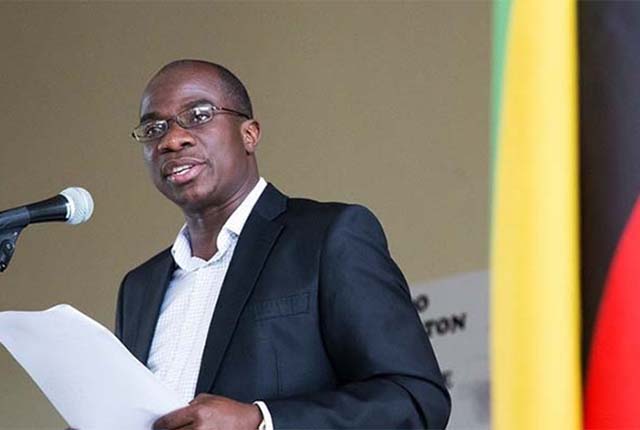Ministry unveils game changer

Eddie Chikamhi : Sports Reporter
IN what could change the face of sport forever, the Ministry of Sport and Recreation is set to launch a blueprint to tap talent from across the country by encouraging mass participation in organised events through the Community Sports and Recreation Club Programme. The Minister of Sport and Recreation, Makhosini Hlongwane, yesterday said the programme, which puts structures in place from the grassroots, seeks to reach out to talent even in the remotest areas of the country.
If implemented correctly, the Ministry is looking to have at least 8 000 football clubs across the country, 8 000 athletics clubs and almost the same number for many disciplines, competing at ward level.
The Ministry is targeting 22 sporting disciplines for a start and each ward is expected to have an average four clubs for every discipline.
The clubs should be able to compete internally in the ward and then feed to the districts up to the national level.
The wards will also be married with established clubs in the Premier Soccer League, the National Rugby League, the National Cricket League and all other top leagues.
The programme will see thousands of technical people, who include referees and coaches, being trained and this will boost the database of technical personnel for all sports.
Besides talent identification by established teams around the country, the programme will also help in the selection of teams for the National Youth Games alongside the NAPH and NASH.
“In implementing the recently approved Sport and Recreation policy, Government has prioritised the introduction of organised sport at community and grassroots level.
“This will go a long way in bridging the divide between elite sport and grassroots sport which was created by the colonial structures. This approach will activate mass participation and sport for all with the end result being stimulating the economy of that sector in terms of employment and healthy lifestyles for thousands of people of different ages.
“Organised sport is now visiting all areas of our country and our officers are busy on the ground with consultations to achieve this lofty ideal.
“Henceforth our national teams should be fully representative embracing talent from all corners of the country, but further the processing of that raw talent by our competition structures should provide equal opportunities for all athletes in Zimbabwe in line with our policy of equity and inclusion,” said Hlongwane.
The Ministry has already started engaging stakeholders through sensitisation meetings with interested parties such as community leadership, Government departments, people with disability, sport associations, schools, tertiary institutions, volunteers, youth officers, donors, business community and development partners.
The Ministry has identified the Community Sport and Recreation Development Strategy as the platform for decentralisation and democratisation of sport and recreation in Zimbabwe.
Through this strategy, the Ministry of Sport and Recreation, in collaboration with stakeholders, is rolling out this community sports club programme that will affect all corners of Zimbabwe including the previously disadvantaged rural communities.
For sustainability of the clubs, the committees elected to run the clubs are expected to initiate resource mobilisation initiatives which include affiliation fees, sponsorship, gate takings, partnerships, income generating projects and participation fees.
Clubs are also required to receive a certain fee for the transfer of athletes from one club to another.
“It is Government’s desire to introduce organised sport and recreation in all communities as part of a broad plan to organise the industries. Government is keen to develop the sport and recreation sector into a thriving industry by regulating, programming in order to facilitate the creation of gainful employment.
“The Community Sport and Recreation Club system is an effective platform for stimulating mass participation in sport and recreation by all people including youth, women, persons with disability and the elderly in order to address issues of discipline, employment, patriotism, gender, healthy lifestyles, tolerance of difference, community development, fairness, culture, nationhood, social cohesion and generating a productive working class thereby contributing towards the economy of Zimbabwe.
“Sport and Recreation Specific Clubs will be established at rural, farming, mining and urban service centres as multiple-discipline institutions offering several sport, recreation and other community services to their members.
“The community sport and recreation clubs will offer opportunities for pooling of resources by local people, local authorities, development partner, corporates and individual donors towards community infrastructure development which encompasses sport and recreation club buildings and sport and recreation facilities thus in the process create employment for the local people.”










Comments